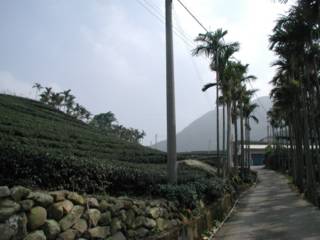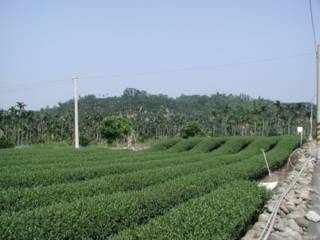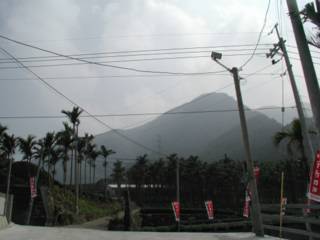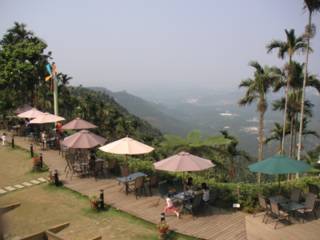Is Hoklo Taiwanese a dialect or a language?
This interesting little debate came up today in the office. I overheard one of the teachers (an Englishman) telling his student that Hoklo Taiwanese is a dialect, not a language. Upon overhearing this, just in the next cubicle, one of the other teachers (an American) corrected the Englishman, saying that he thought that Hoklo Taiwanese was a language in its own right.
I’ve debated this question more than once before, so I took a back seat at first and listened, and I actually learned something new.
It’s always been a bit of a touchy subject. Especially when people start arguing that Hoklo Taiwanese is a dialect of Mandarin Chinese- these are the two most commonly spoken languages in Taiwan today.
Hoklo Taiwanese, which is also called Minnan, and Southern Min, comes from Fujian, China and has since evolved into its present form. It was probably one of the most widely spoken languages in Taiwan until around 1947, when the authoritarian Kuo Ming Tang party fled from China to Taiwan and imposed Mandarin Chinese as the official language on the people of Taiwan.
Already, you can see that the whole debate of dialect or language is about much more than just semantics.
There never seems to be complete consensus on this. I know what my opinions on this are; this is not the first time I've been challenged on this.
The Englishman’s first argument was that Hoklo Taiwanese isn’t a language because it can’t be written.
This argument is questionable. The question here is really: Which writing system should be used for Hoklo? Some say that Taiwanese can be written in Han (i.e. Chinese) characters, but since Hoklo has 8 tones, while Mandarin has 4, to write Hoklo accurately requires the use of traditional Han characters that are no longer commonly used.
But if Hoklo Taiwanese uses the same written character system as Mandarin, then it must be a dialect of Mandarin, right?
This is something that non-Chinese speakers presume about Sinitic languages, explained the American. Just because speakers of Hoklo, Cantonese and Mandarin can read the same newspaper written in Han characters, does not mean that Hoklo and Cantonese are dialects of Mandarin.
Well, there are also several romanized writing systems for Hoklo. And just because two languages use the same symbol systems does not mean that they are in the same dialect family.
But does a language have to exist in a written form? There are probably many languages that have existed throughout history which did or do not necessarily have a strict, written form. One definition of language that I found online states:
Language is communication through signs, symbols and gestures in spoken or unspoken (written or other non-verbal) forms. Language is often used to express ideas.
Sign language is considered a language in its own right even though it doesn’t conform to what most of us have been conditioned to think is a language.
People often incorrectly assume or argue that Cantonese and Hoklo are dialects of Mandarin. This faulty conclusion is probably based on the fact that the Chinese government that has designated Mandarin its official language and referred to anything else as
dialects of Chinese . But perhaps confusion over the terms of dialect and language are in part due something that gets lost in translation, since the Chinese character that translates as “dialect” in English does not have as precise a meaning as the English word dialect.
Continuing to support his argument, the American added:
For something to be considered a language, it doesn't have to have a written form. What distinguishes if something is a language or dialect is if two people speak to each other and what they are saying to each other is mutually intelligible, i.e. the two people can understand each other’s speech, then we have two dialects. If the two people are unable to understand each other’s speech, then we have two languages.
From my personal experience, I know that it is possible to be able to speak and understand Hoklo Taiwanese, and at the same time to NOT be able to speak or understand Mandarin Chinese. That has always been the case for me and my grandparents who only spoke Japanese and Hoklo Taiwanese. Of course the opposite is also true. A non-Asian friend of mine who lived in Taiwan, learned how to speak Mandarin Chinese quite proficiently, but still could never understand when his Taiwanese friends spoke Hoklo. Would this not make Hoklo and Mandarin separate languages?
So where do we draw the line? What makes a communication system a language or dialect?
Hoklo Taiwanese is without a doubt distinctive from Mandarin Chinese- in my opinion. The Hoklo/Minnan/South Min spoken in Taiwan reflects Taiwan’s unique historical and cultural influences. The etmology of Hoklo Taiwanese can be derived from the Fujian Min language, Japanese, Dutch, Mandarin Chinese, locally developed terms, aboriginal languages (of aborigines indigenous to Taiwan).
As I pondered this question and searched deeper for answers, so I went to the almighty
www.about.com . I love this website! Time and time again it has yielded useful information. It’s led to me to answers on matters trivial, important and involved. It brought me to this invaluable website that I highly recommend to anyone interested in reading up on Chinese languages and dialects:
http://www.glossika.com/en/dict/faq.htm
This site even has pages with online Taiwanese language lessons at:
www.glossika.com/en/dict !
Upon examining the classification system used by James Campbell on glossika.com, we see that the word
language is used as an umbrella term or name that applies to a group of
dialects. According to glossika.com, Hoklo Taiwanese (aka Minnan, Southern Min) is in the Min family of dialects, which is clearly a different category than the Mandarin language, with its own dialects. This is where the confusion comes in, if Mandarin is a language and Hoklo is a dialect, this creates some hierarchical bias and faulty conclusions about the relationship between Hoklo and Mandarin. It must be clarified, that Taiwanese is not a dialect of Mandarin, it is in its own family of dialects. Mandarin is a separate language with its own dialects.
But these ways of speaking (whether called language or dialect) are live, constantly evolving systems. How do we really draw the line between language and dialect?
Interestingly, in his discussion of the terms language and dialect, Mr. Campbell states that “Traditionally, languages have been identified with countries and nations, and dialects with local varieties.” He also points out that speakers of Danish and Norwegian can understand each other but that we call Danish and Norwegian languages, not dialects. So this is an example of how national identity and sovereignty come into play when calling something a language. A close parallel can be drawn between this example and the issue of calling Taiwanese a dialect or language. Would the debate end if Taiwanese were designated as a standard or official language in Taiwan?
This stuff excites me- really!- the discussion and nuances of language. I stumbled onto some other interesting web pages about Taiwanese languages with bilingual links:
http://daiwanway.dynip.com/links
(a bilingual English/Chinese website with links to interesting articles about the desinification of language, discussion of Hoklo people of Taiwan and the Austro-Tai (a branch of Austronesian culture) connection between the Hoklo, Hakka, and Taiwanese aborigines.)
www.hoklo.org
(offers an explanation of the term Hoklo)








